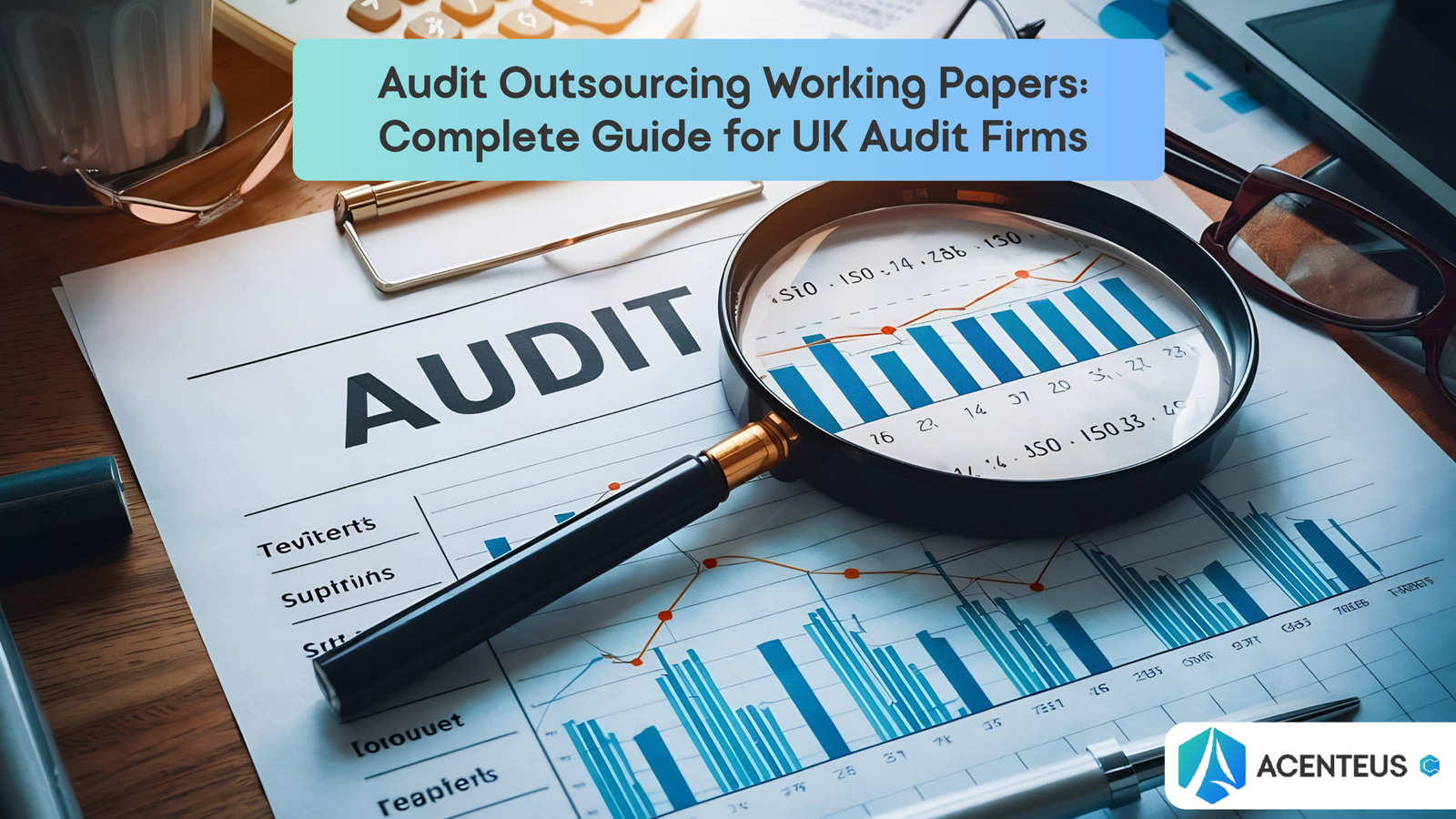Did you know that setting up a limited company in the UK can cost as little as £50 for standard online registration?
Indeed, the UK offers one of the most straightforward and affordable company formation processes in the world. If you need your company registered the same day, the fee increases to £78, while paper registration costs £71. The good news? With proper documentation, your company can be fully incorporated within just three working hours, getting you up and running quickly.
Starting a limited company requires specific elements. You’ll need a unique company name, a registered office address, at least one director, and at least one shareholder. Additionally, there are certain restrictions – directors must be at least 16 years old and cannot be undischarged bankrupts or disqualified directors.
The UK’s stable business environment and strong global connections make it an attractive destination for both domestic and foreign investors. Once your company is registered, you’ll receive a Unique Tax Reference (UTR) number from HMRC for all your tax-related matters.
In this comprehensive 2025 guide, we’ll walk you through the entire process of forming a limited company – from deciding if it’s the right structure for your business to completing post-registration tasks. Whether you’re launching your first venture or transitioning from a sole trader setup, this step-by-step approach will ensure you navigate the company formation process with confidence.
Step 1 – Decide if a Limited Company Is Right for You
Before forming a limited company in the UK, you must first determine if this structure aligns with your business goals. The decision you make now will significantly impact your tax obligations, personal liability, and administrative responsibilities moving forward.
Pros & Cons of Incorporation in 2025
Advantages of Limited Companies:
- Limited Liability Protection: Your personal assets remain separate from business debts, protecting your home and savings if the business faces financial difficulties. As a shareholder, your liability is limited to the amount you invested in the company.
- Tax Efficiency: Companies pay Corporation Tax on profits (19-25%), which is typically lower than personal income tax rates (20-45%). Furthermore, you can pay yourself through a combination of salary and dividends, creating a more tax-efficient remuneration strategy.
- Professional Credibility: A limited company structure often enhances your business image. Many clients and suppliers perceive limited companies as more established and trustworthy, with some organisations refusing to work with non-incorporated businesses.
- Funding Opportunities: Companies can raise capital by selling shares to new investors, making it easier to secure funding for growth and expansion.
Disadvantages to Consider:
Forming a limited company also involves increased paperwork. You must maintain three types of legally required records: company activities, financial transactions, and records of persons with significant control (PSC). Additionally, your business information becomes publicly available through Companies House, reducing privacy compared to other business structures.
Directors of a limited company also carry significant legal responsibilities. These include ensuring the submission of annual accounts and confirmation statements, maintaining accurate financial and statutory records, acting in the best interests of the company, avoiding conflicts of interest, and complying with all relevant tax and legal obligations. Failure to meet these duties can result in penalties, personal liability, or disqualification.
It’s also important to note that new identity verification rules are being introduced under UK company law reforms. These will require all directors, PSCs, and those filing on behalf of a company to complete a formal ID verification process.This change is part of a broader move to enhance transparency and tackle economic crime. Learn more about Identity Verification Requirements here.
Comparing with Sole Trader & Partnership Structures
As a sole trader, you operate as a self-employed individual with complete control over your business. The setup is straightforward—simply register with HMRC—but you face unlimited personal liability for all business debts. Consequently, your personal assets could be seized to cover business obligations.
Unlike sole traders, limited companies create a distinct legal separation between you and your business. This separation means the company can enter into contracts, own assets, and face legal proceedings in its own name.
When deciding between structures, consider that sole traders have simpler administrative requirements but generally become less tax-efficient as profits grow. Comparatively, limited companies typically offer better tax planning opportunities but require more rigorous record-keeping and statutory filings.
Many accountants suggest that if your annual profits exceed £40,000-£50,000, the tax benefits of a limited company structure often outweigh the additional administrative responsibilities.
Limited by Shares vs. Limited by Guarantee: Key Differences and When to Choose Each
When setting up a UK limited company, you’ll typically choose between two structures: Limited by Shares or Limited by Guarantee. While both offer limited liability protection, they serve fundamentally different purposes and are suitable for different types of organisations.
Limited by Shares (most common- 95% of UK Companies):
- Raises investment by selling shares to shareholders
- Owners receive profits through dividends
- Shareholder liability limited to their original investment
- Ideal for profit-making businesses
Choose a company limited by shares when:
- You intend to run a profit-making business
- You want to distribute profits to owners through dividends
- You plan to seek investment through selling shares
Limited by Guarantee ( Typically Non-Profit/ Charity):
- Has guarantors instead of shareholders
- Typically used by non-profits and charities
- Guarantor liability limited to a fixed sum (often just £1)
- Profits reinvested back into the business rather than distributed
- Cannot convert between these structures without forming a new company
Opt for a company limited by guarantee when:
- You’re establishing a non-profit or charitable organisation
- You prefer to reinvest all profits into your organisation’s mission
- You need the legitimacy and limited liability of a company structure for a community project
The structure of Companies limited by shares is ideal for businesses aiming to make profits and distribute them to owners. The company raises investment by selling shares, with shareholders receiving dividends from profits.
In contrast, at Companies limited by Guarantee, instead of shareholders, they have guarantors who contribute a fixed amount if the company is wound up. Rather than distributing profits to members, these companies reinvest earnings back into the business.
Remember that your choice now doesn’t have to be permanent—many businesses start as sole traders and later incorporate as they grow.
Step 2 – Choose Your Company Name & Structure
Once you’ve decided to establish a limited company, selecting an appropriate name and structure becomes your next crucial task. This step requires careful consideration as it defines your business identity and operational framework.
Checking Name Availability & Legal Restrictions (2025 updates)
Choosing your company name involves more than creativity—it must comply with specific legal requirements. Your company name must be unique and not “the same as” or “too similar” to any existing company on the register. Companies House has enhanced its powers since March, 2024 to reject names that might facilitate fraud, give false impressions of connection to foreign governments, or contain computer code.
Moreover, your name cannot:
- Suggest a connection with the UK government or local authorities
- Contain sensitive words without permission (e.g., “Chartered,” “Bank,” “Academy”)
- Be offensive or inappropriate
- Imply criminal activity
To verify availability, use the Companies House name check tool online. Private limited companies must end with “Limited” or “Ltd” (or Welsh equivalents “Cyfyngedig” or “Cyf” if registered in Wales).
According to the 2025 regulatory updates, Companies House can now direct existing companies to change their names if wrongly registered, providing stronger oversight of business identities.
Selecting the Correct SIC Code for Your Business Activity
Every UK company must provide at least one Standard Industrial Classification (SIC) code during registration. These five-digit codes classify your business activities and help government bodies track economic trends.
There are over 600 individual SIC codes organised into 21 main industry categories. You can select up to four codes if your business offers diverse services. Even dormant (code 99999) or non-trading companies (code 74990) must provide a SIC code.
When searching for appropriate codes, use the condensed list provided by Companies House. Interestingly, the current SIC code system is somewhat outdated for modern businesses—there are more codes for knitting and weaving machines than for the entire internet. A significant update is planned for 2025.
Your SIC codes appear on your company’s public record and must be confirmed or updated annually on your confirmation statement. Choose carefully, though you can change your SIC code later if your business activities evolve.
Step 3 – Appoint Key People & Define Roles
After registering your company name, the next critical step involves appointing the right people to run your business. The individuals you select will significantly influence your company’s operations and legal responsibilities.
Director & Shareholder Eligibility Requirements
Every limited company must have at least one director who bears legal responsibility for running the company and ensuring compliance with statutory obligations. Directors must be at least 16 years old and cannot be disqualified from serving or be undischarged bankrupts.
Importantly, directors don’t need to live in the UK, though your company must maintain a UK-registered office address. Their names and service addresses will be publicly available through Companies House, though home addresses can be removed from the public register upon request.
For a shareholding structure, a company limited by shares must have at least one shareholder, who can also serve as a director. If you’re the only shareholder, you’ll own 100% of the company. Shareholders control the company through their voting rights, receive dividends from profits, and can appoint or remove directors.
Nevertheless, directors and shareholders represent distinct roles with different responsibilities. Directors manage daily operations while shareholders own the business, though in small companies, these are often the same individuals.
Understanding Persons with Significant Control (PSC)
Since 2016, UK companies must identify and register their Persons with Significant Control. A PSC is someone who:
- Holds more than 25% of shares in the company
- Controls more than 25% of voting rights
- Has the right to appoint or remove the majority of directors
- Otherwise, exercises significant influence or control
You must register PSC information with Companies House within 14 days of confirmation, including their name, date of birth, nationality, and service address. Specifically, you must indicate their level of control within categories: over 25% up to 50%, more than 50% and less than 75%, or 75% or more.
Do You Need a Company Secretary in 2025?
For private limited companies, appointing a company secretary is optional following the Companies Act 2006. Conversely, public companies must have a qualified company secretary.
Despite being optional, many private companies still choose to appoint a secretary to help manage administrative tasks. A company secretary typically maintains statutory records, prepares filings, and ensures regulatory compliance.
If you don’t appoint a secretary, all administrative and compliance responsibilities fall to the directors. Primarily, this means directors must handle statutory books, confirmation statements, and regulatory filings themselves or delegate these tasks to professionals like accountants.
Step 4 – Prepare & Submit Legal Documents
The legal paperwork forms the backbone of your limited company’s existence. Preparing these documents correctly is essential for successful registration with Companies House.
Drafting Memorandum & Articles of Association (2025 model articles)
The memorandum of association is a legal statement signed by all initial shareholders or guarantors agreeing to form the company. Essentially, it documents the founding members’ intent to create and join the company. If you register online, this document is automatically generated during the application process.
Your articles of association function as your company’s rulebook, outlining how it will be run. You have three options:
- Use standard model articles (default rules from Companies House)
- Adopt model articles with modifications
- Create entirely bespoke articles
For most businesses, the model articles are sufficient. However, if you need specific provisions or multiple share classes, you may need customised articles. In such cases, it is strongly recommended to seek independent legal advice, as these matters involve legal considerations that fall beyond the remit of an accountant.
Completing the Statement of Capital or Guarantee
When forming a company limited by shares, you must complete a statement of capital detailing:
- Total number of shares
- Classes of shares (usually ordinary)
- Nominal value of shares
- Rights attached to each share class
For companies limited by guarantee, you’ll provide a statement of guarantee instead, listing all guarantors and their guaranteed amounts (typically £1).
Setting Your Registered Office & Service Address
Your registered office address must be:
- A physical location in the UK
- In the same country as your company registration
- Able to receive and acknowledge official correspondence
This address appears on public record, so many entrepreneurs opt for a business address rather than a home address. Service addresses for directors function similarly but can be located anywhere.
Filing Form IN01 with Companies House
Form IN01 combines all this information into your official application. It includes company details, director information, registered office, and share/guarantor particulars. You can submit online for £50 or by post for £71. Once approved, you’ll receive your certificate of incorporation, officially establishing your company as a legal entity.
Step 5 – Complete Registration & Post-Setup Tasks
Congratulations! Your application has been approved, and now it’s time to complete essential post-registration tasks to make your limited company fully operational.
Receiving Your Certificate of Incorporation
Upon successful registration, Companies House issues your certificate of incorporation, confirming your company legally exists. This crucial document displays your company number, incorporation date, and carries the Registrar’s official seal. You’ll typically receive it electronically if you applied online, or by post for paper applications.
Keep this certificate safe, as it serves as conclusive evidence that your company has complied with all registration requirements. Banks typically require this document when opening a business account, and you may need it for loan applications or if selling your company.
Registering for Corporation Tax with HMRC
After incorporation, you must add Corporation Tax services to your business tax account when you start doing business. This includes activities like buying, selling, advertising, or employing staff.
You’ll need:
- Your company registration number
- The date you started trading
- Your 10-digit Unique Taxpayer Reference (UTR)
HMRC generally issues your UTR automatically within two weeks of incorporation. Subsequently, you’ll receive an activation code to complete your Corporation Tax registration. Remember, you must register within three months of starting business activities.
Setting Up Statutory Registers & Accounting Records
All UK companies must maintain statutory registers containing official company information. These legally required records include:
- Register of members (shareholders)
- Register of directors and their residential addresses
- Register of People with Significant Control (PSC)
- Register of secretaries (if applicable)
Store these registers at your registered office or Single Alternative Inspection Location (SAIL), where they must be available for inspection. Failure to maintain these records can result in unlimited fines for both the company and its officers.
Opening a Business Bank Account
Finally, if you’re a limited company, you must open a dedicated business bank account since your company is a separate legal entity from yourself. When applying, you’ll typically need your certificate of incorporation, proof of ID, and business address. Many banks offer business accounts with additional features like expense tracking and accounting software integration.
Conclusion & Next Steps
Final Thoughts on Setting Up Your UK Limited Company
Setting up a limited company represents a significant milestone in your entrepreneurial journey. Throughout this guide, we’ve walked through each crucial step of the formation process, from deciding if incorporation suits your needs to completing essential post-registration tasks.
First and foremost, remember that limited companies offer substantial benefits – personal asset protection, tax efficiency, enhanced credibility, and better funding options. However, these advantages come with additional responsibilities such as maintaining statutory records and filing annual reports.
Choosing the right business structure fundamentally shapes your company’s future. Although the initial setup might seem daunting, the process has been significantly streamlined in recent years. You can now register online for as little as £50 and potentially have your company incorporated within hours [95].
Your company name and registered office become your business identity; therefore, select them carefully. Likewise, appointing appropriate directors and understanding their legal responsibilities ensures your company operates within regulatory frameworks. The documentation requirements – particularly your memorandum and articles of association – establish the foundation for how your business will function.
After incorporation, you must take several immediate actions. Registering for Corporation Tax within three months of starting business activities stands as a legal requirement. Additionally, opening a dedicated business bank account helps maintain the separation between personal and company finances, a critical aspect of preserving your limited liability protection.
Despite the administrative requirements, the advantages of running a limited company typically outweigh the drawbacks for growing businesses. The tax efficiency alone often justifies the transition from sole trader status once profits exceed certain thresholds.
Lastly, while this guide covers the essentials, many entrepreneurs find value in seeking professional assistance from accountants or company formation specialists, especially when dealing with complex shareholding structures or industry-specific requirements.
Whether you’re launching a new venture or transforming an existing business, the limited company structure provides a robust framework for growth and protection. By following the steps outlined in this guide, you’ll be well-positioned to establish and operate your company successfully in the UK business landscape.
Frequently Asked Questions
Setting up a limited company offers several benefits, including limited liability protection for personal assets, potential tax efficiencies, enhanced professional credibility, and improved opportunities for raising capital through share sales.
The cost of registering a limited company in the UK starts at £50 for standard online registration. Same-day registration costs £78, while paper registration is priced at £71. With proper documentation, your company can be incorporated within three working hours.
A limited company must have at least one director who is responsible for running the company and ensuring compliance with statutory obligations. Additionally, the company needs at least one shareholder. A company secretary is optional for private limited companies but mandatory for public companies.
Key documents include the memorandum of association, articles of association, and Form IN01. You'll also need to prepare a statement of capital (for companies limited by shares) or a statement of guarantee (for companies limited by guarantee), and provide details for your registered office address.
After incorporation, you should receive your certificate of incorporation, register for Corporation Tax with HMRC within three months of starting business activities, set up statutory registers and accounting records, and open a dedicated business bank account for your company.







